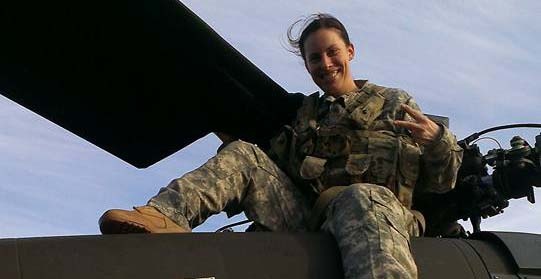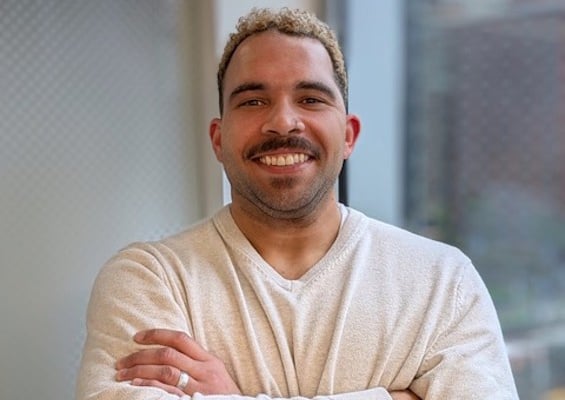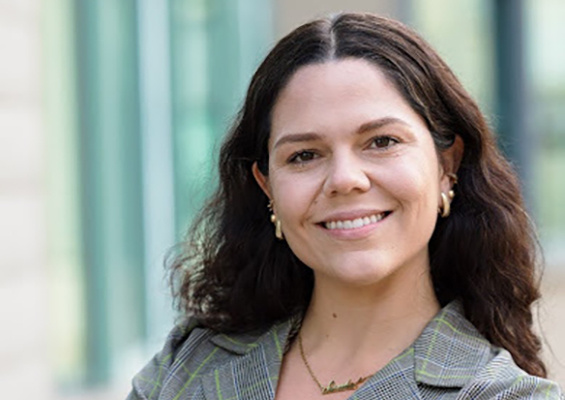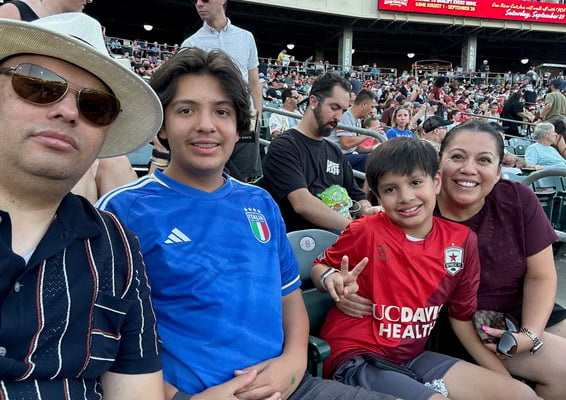Earning an MBA after serving in the U.S. military may seem like an unlikely career choice, but it actually makes a lot of sense: “Veterans tend to have leadership skills that can translate well from the battlefield to the boardroom, particularly when it comes to managing others,” says former U.S. Army captain and full-time Berkeley MBA student Jennifer Nixon. She served for eight years as a helicopter pilot. By the end of her tenure, she had achieved the rank of captain.
"In the military, you're thrown quickly into formal leadership positions, even if you don't yet have the experience," she says. "As an officer, I was put in charge of 20 pilots and mechanics and four helicopters right away, so I definitely learned through doing."
What brought Jennifer to Berkeley Haas? She shared her journey with the Berkeley MBA Blog.
How did your military experience develop you as a leader?

I had some fantastic bosses who taught me that it wasn't necessarily my experience that made me a valuable contributor to the team, but my leadership potential. The Army has a strict hierarchy, with an enlisted level, a warrant officer level, and an officer level. I started at the enlisted level and by the end of my career was a captain at the officer level. I definitely learned on the job, leaning on warrant officers for help while I grew my own expertise.
Why did you want to pursue an MBA?
After eight years of active duty I accomplished what I set out to do – serve as a company commander – and I was excited by the idea of moving into the corporate world. There were many great things about my job in the Army – flying helicopters is pretty exhilarating – but I found the best part for me was leading teams and in-the-moment problem solving. I suspected that an MBA could help me translate the analytical and management skills I learned in the Army to the business world.
Why did you choose Berkeley Haas?
I chose Haas not only for its prestige and its track record for job placement after graduation but also because when I came to Berkeley for my admissions interview, I fell in love with the culture of the school. Berkeley Haas has a very collaborative, supportive environment. The admissions office connected me to the Veteran's Club and I talked to a member about everything from how the GI Bill works for graduate programs to what it's like to live in "hippie" Berkeley. After I was accepted, I got outreach calls from alumni, current students, even some of the faculty. It felt like the school was a good fit for me and that I was a good fit for it.
What does your military experience contribute to the MBA program?
During my time in the Army, I learned how to cope calmly with stressful situations, and I bring that perspective to the Berkeley Haas MBA program. I'm finding that many of the concepts I learn in class are familiar to me, but that the language is different. A recent class, Leading People, was all about how to motivate and assess people, and those are skills I used throughout my years in the Army. As a veteran, when faced with a problem I take the approach, “Okay, we're in this situation, let's figure it out, and I think that works in the business arena, too.”
What would you tell other veterans or active duty members who are considering business school?
Go for it. Business school is a great way to find how you fit in the corporate world. And at the end of the day, business skills are good to have, no matter what line of work you go into.
How does the Berkeley MBA program make your goals more possible?
Berkeley Haas has so many resources, like the career management group, interview prep sessions, and job listings. And the networking aspect of the program is far more important than I expected. I get to network with classmates who come from industries I might be interested in, and also with companies and their representatives at informal and formal events the school hosts. It makes the prospect of finding a job much less intimidating.
/liz-120.png)







